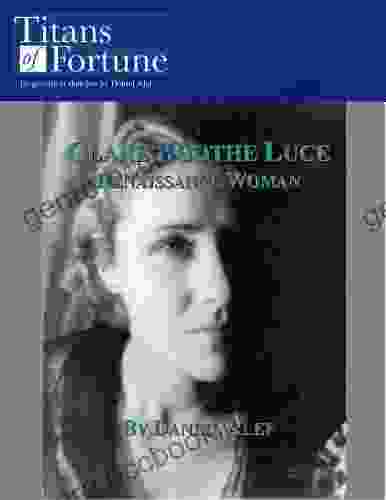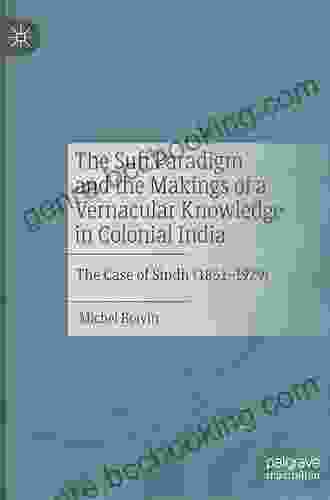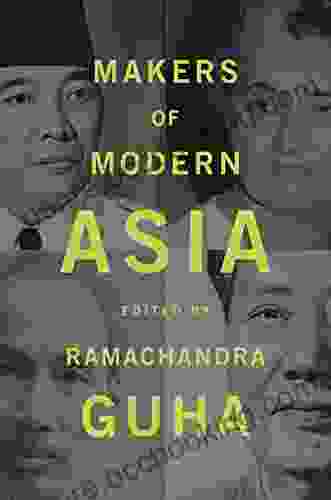Unveiling the Lost History of Sindh: A Comprehensive Review of "The Case of Sindh 1851-1929"

Nestled in the heart of South Asia, Sindh holds a rich and multifaceted history that has often been overshadowed by the dominant narratives of the Indian subcontinent. In his seminal work, "The Case of Sindh 1851-1929," Dr. Mubarak Ali casts a fresh light on this forgotten chapter, presenting a comprehensive analysis of the region's struggle for autonomy and independence during the British Raj era.
5 out of 5
| Language | : | English |
| File size | : | 11048 KB |
| Text-to-Speech | : | Enabled |
| Screen Reader | : | Supported |
| Enhanced typesetting | : | Enabled |
| Print length | : | 435 pages |
Historical Context
Prior to the British conquest in 1843, Sindh was an independent kingdom under the Talpur dynasty. However, the arrival of the British East India Company disrupted the region's tranquility, leading to its annexation and incorporation into the Bombay Presidency. This marked the beginning of a period of colonial exploitation and suppression that would last for nearly a century.
The Rise of Sindhi Nationalism
The British Raj imposed a heavy tax burden on Sindh and neglected its economic and social development. This led to widespread resentment among the local population, which gradually coalesced into a nascent nationalist movement. The book meticulously documents the growth of Sindhi nationalism, highlighting the role of influential figures such as G.M. Syed and Allah Bakhsh Soomro.
Struggle for Autonomy
The Sindhi nationalist movement advocated for greater autonomy and self-governance within the British Empire. Dr. Ali provides detailed accounts of the various constitutional proposals and negotiations that took place during this period. He analyzes the interplay between the Sindhi leadership, the British authorities, and the wider Indian nationalist movement.
The Road to Independence
As India moved closer to independence in the 1940s, the question of Sindh's future became increasingly pressing. The book examines the complex negotiations that led to the partition of India and the creation of Pakistan. Dr. Ali argues that Sindh's aspirations for autonomy were ultimately compromised in the interest of national unity.
Historical Significance
"The Case of Sindh 1851-1929" is a groundbreaking work that sheds light on a crucial but often overlooked chapter in South Asian history. It provides a nuanced understanding of the factors that shaped Sindh's struggle for independence, revealing the region's resilience, determination, and the complexities of the colonial era.
Book Summary
The book is divided into three main parts:
1. Part I provides a historical overview of Sindh before and during the British conquest. 2. Part II explores the rise of Sindhi nationalism and the struggle for autonomy. 3. Part III examines the role of Sindh in the Indian independence movement and the aftermath of partition.
Author Biography
Dr. Mubarak Ali is a renowned historian and scholar specializing in South Asian studies. He has written extensively on the history of Sindh and the British Raj. His research has received critical acclaim for its rigor, originality, and insights into the region's past.
"The Case of Sindh 1851-1929" is an essential read for anyone interested in the history of Sindh, the British Raj, and the Indian independence movement. It is a testament to the enduring spirit of the Sindhi people and a valuable contribution to our understanding of South Asia's complex past. By bringing the forgotten history of Sindh to light, Dr. Mubarak Ali has done a great service to scholarship and the public alike.
5 out of 5
| Language | : | English |
| File size | : | 11048 KB |
| Text-to-Speech | : | Enabled |
| Screen Reader | : | Supported |
| Enhanced typesetting | : | Enabled |
| Print length | : | 435 pages |
Do you want to contribute by writing guest posts on this blog?
Please contact us and send us a resume of previous articles that you have written.
 Book
Book Novel
Novel Page
Page Chapter
Chapter Text
Text Story
Story Genre
Genre Reader
Reader Library
Library Paperback
Paperback E-book
E-book Magazine
Magazine Newspaper
Newspaper Paragraph
Paragraph Sentence
Sentence Bookmark
Bookmark Shelf
Shelf Glossary
Glossary Bibliography
Bibliography Foreword
Foreword Preface
Preface Synopsis
Synopsis Annotation
Annotation Footnote
Footnote Manuscript
Manuscript Scroll
Scroll Codex
Codex Tome
Tome Bestseller
Bestseller Classics
Classics Library card
Library card Narrative
Narrative Biography
Biography Autobiography
Autobiography Memoir
Memoir Reference
Reference Encyclopedia
Encyclopedia Seth Fletcher
Seth Fletcher Kyle Eschenroeder
Kyle Eschenroeder Kurt Vonnegut
Kurt Vonnegut Stephen Galloway
Stephen Galloway Lex Ronin
Lex Ronin Libby Romero
Libby Romero Laxuri Art
Laxuri Art Mary Colson
Mary Colson Norman Gelb
Norman Gelb Linda West
Linda West Tyanna
Tyanna Magic Guidebooks
Magic Guidebooks Jeanne St James
Jeanne St James Linda Shantz
Linda Shantz Laurie Forest
Laurie Forest Lane Duncan
Lane Duncan Renae Rae
Renae Rae Linda Sejic
Linda Sejic Matilda Walsh
Matilda Walsh L David Marquet
L David Marquet
Light bulbAdvertise smarter! Our strategic ad space ensures maximum exposure. Reserve your spot today!

 Fernando PessoaDiscover the Enchanting World of Curly Kitten and Find Your Perfect Bedtime...
Fernando PessoaDiscover the Enchanting World of Curly Kitten and Find Your Perfect Bedtime... Brady MitchellFollow ·6.1k
Brady MitchellFollow ·6.1k Derek BellFollow ·10.7k
Derek BellFollow ·10.7k Marvin HayesFollow ·13.9k
Marvin HayesFollow ·13.9k Liam WardFollow ·9.4k
Liam WardFollow ·9.4k Jeff FosterFollow ·13.7k
Jeff FosterFollow ·13.7k Brent FosterFollow ·6.7k
Brent FosterFollow ·6.7k Martin CoxFollow ·7.7k
Martin CoxFollow ·7.7k John SteinbeckFollow ·3.4k
John SteinbeckFollow ·3.4k

 Branden Simmons
Branden SimmonsUnveiling the World of Tequila: A Collector's Guide to...
: Prepare to embark on a tantalizing journey...

 Chuck Mitchell
Chuck MitchellHazel McCallion and the Development of Mississauga: A...
: The Matriarch of Mississauga Hazel...

 Lucas Reed
Lucas ReedUnveiling the Hidden Treasures of Tequila, Mezcal, and...
Prepare to be captivated...

 Isaias Blair
Isaias BlairBusinesses With Stories: The Power of Storytelling in...
In today's competitive business environment,...

 Ethan Gray
Ethan GrayUnveiling the World of Tequila, Mezcal, and Sotol: The...
Embark on a...

 Barry Bryant
Barry BryantClare Boothe Luce: Renaissance Woman
In the annals of history, few...
5 out of 5
| Language | : | English |
| File size | : | 11048 KB |
| Text-to-Speech | : | Enabled |
| Screen Reader | : | Supported |
| Enhanced typesetting | : | Enabled |
| Print length | : | 435 pages |










